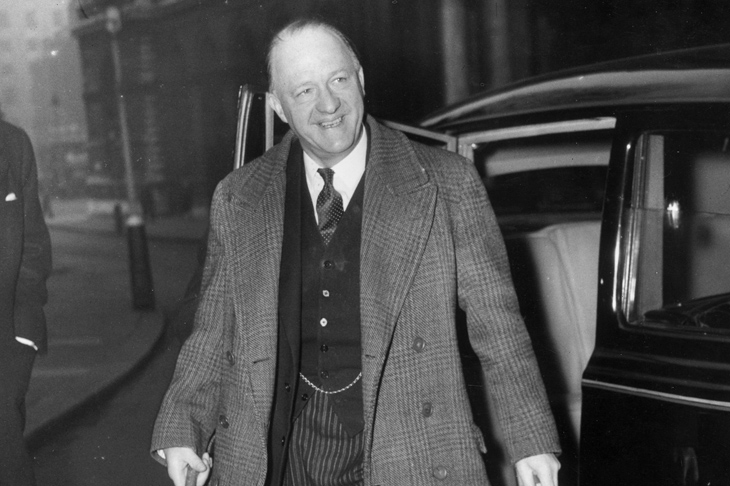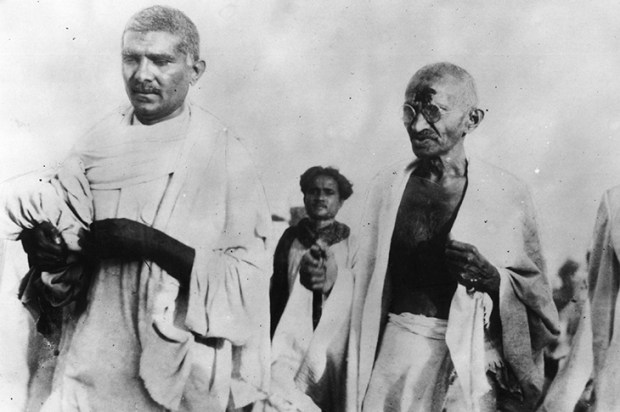I bet that you are at best dimly aware of the Progress Trust, and that is what the members of this now-defunct fixture would have wanted. It was a misleadingly named group of comfortably off, often landed backbench Tory MPs, and its weekly discussions very rarely leaked. An unnamed member once explained why. ‘We have no shits,’ he said.
The Trust, which would number Alec Douglas-Home and David Cameron, briefly, among its members, was secretive from the outset. It was established in 1943 to resume a more partisan style of politics, at a time when both main parties were still in theory committed to a ceasefire that the Conservatives felt Labour was breaking. It gathered together Tories who felt that ‘Rule by regulation and bureaucratic control and interference, however necessary in wartime, should NOT continue in peace,’ but feared that it might.
Yet while such a view would have appealed to their chief funders, the shadowy British United Industrialists, their disdain for ‘the socialist error of theorising’ led them to avoid opposing nationalisation outright. Although lazily labelled as right-wing, the Trust’s members are hard to classify. Without Hindsight’s author, Richard Ritchie, who knew them well, having worked for the Trust as its research officer from 1982 until it gave up the ghost in 2005, says that they favoured ‘a strand of Toryism which was uncomplicated, evolutionary and patriotic’.
The main task of the Trust was to ensure its members were well briefed. At weekly meetings they discussed matters that concerned them. These included recurrent issues like immigration and Europe, each of which Ritchie devotes chapters to, and matters of more personal interest. The book highlights some topics discussed during the Macmillan era, which included ‘a closed season for red deer’, ‘birching’ and ‘the length of the Minister’s speech on potatoes last night’. Dinners were another regular and popular fixture. When the breathalyser test was mooted in the early 1960s, the members agreed it was ‘a bad idea’ which would be ‘extremely difficult to implement, owing to different people’s reactions to alcohol’.
The Trust’s moment of notoriety occurred at one of these private dinners, during the Suez crisis. On 14 November 1956 Rab Butler, who was a regular invitee, revealed the extent of the run on the pound which the lack of American support for the British invasion had triggered, infuriating his audience. Afterwards he blamed the Trust’s members for stabbing him in the back and so destroying his chances of succeeding Eden, an accusation which ignored the plotting against him by more powerful cabinet colleagues.
How influential, then, was the Trust? Apart from Butler’s tendentious accusation, it is hard to identify specific incidents. The Trust was no factory of election-winning ideas, but Ritchie convincingly argues that this very lack of imagination makes it worthy of study:
The problems faced by Mrs Thatcher with her own colleagues in introducing her economic reforms… are more easily understood when seen from the perspective of a cautious and conventional Progress Trust.
The book would have benefitted from more context in some places; it depends overly on the Trust’s minute books and research papers. Its subject is of distinctly niche interest. Yet Ritchie is a wry and clear narrator with an eye for contemporary resonance. In the aftermath of the Orpington by-election shock in 1962 the Trust’s researcher wondered whether the Conservatives’ defeat might be due to the fact that ‘These people were put to the gravest inconvenience by the period of working to rule adopted without union sanction by the electric train drivers on Southern Region some weeks back.’ Reassuringly, at least for the Progress Trust, some things do not change.
Got something to add? Join the discussion and comment below.
Get 10 issues for just $10
Subscribe to The Spectator Australia today for the next 10 magazine issues, plus full online access, for just $10.
You might disagree with half of it, but you’ll enjoy reading all of it. Try your first month for free, then just $2 a week for the remainder of your first year.














Comments
Don't miss out
Join the conversation with other Spectator Australia readers. Subscribe to leave a comment.
SUBSCRIBEAlready a subscriber? Log in